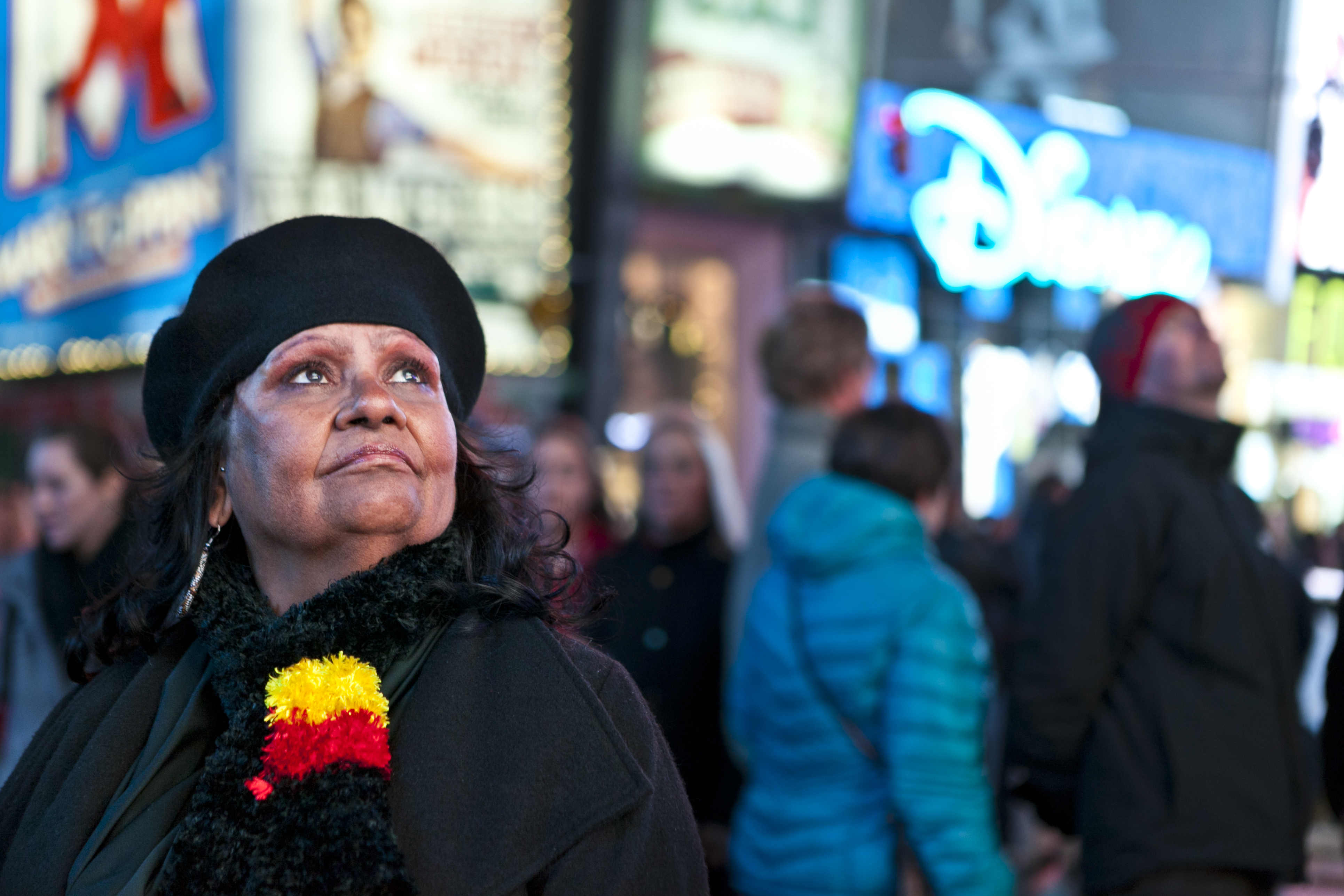The inspirational Marlene Cummins is excited about the release of her debut album, along with a documentary all about her time as a ‘Black Panther woman’.
June is going to be a monumental month for Marlene Cummins. It sees both the release of the Rachel Perkins’ directed documentary Black Panther Woman, all about Marlene’s time in the Black Panther Party of Australia, as well as the release of her debut album, Koori Woman Blues.
Marlene likes to describe herself in the words of Richard Bell: “an activist disguised as an artist”. It’s a role that she has been playing since her involvement with the Black Panther movement, which began more than four decades ago.
Marlene was only 18 years old when she met Denis Walker and Sammy Watson Jnr at a local dance in Brisbane. They got talking and that evening, Marlene became an early recruit to the movement. She moved into the house the Australian Black Panther Party would end up sharing and using as their official headquarters.
“This was a chapter of the Black Power movement, an organised headquarters – we didn’t exist anywhere else in Australia,” says Marlen
“As part of being a Panther, you had to sit in the morning with Denis Walker and Samuel Watson Jnr and read all the [Black Power] literature, do your part around the house, cook, clean, look for a job if you didn’t have one, and then we’d go on rallies.”
The idea for the documentary grew from a 19-minute short film Marlene produced for the Metro Screen competition. The comedic take on the Black Panther movement in Australia was called Seize the Dreamtime, referencing the 1960’s protest-era book Seize the Time penned by African-American Black Panther member Bobby Seale.
“It was playing with the difference between blackfellas in America, who were gun-toting revolutionaries, as opposed to us being Panthers in Australia, from a comical perspective,” recalls Marlene, “and the fact that we are very spiritual people and would be more likely to chuck the gun and run. We could never be these gun-toting terrorists.
“It was a comedy, but I was also stating the parallels between us…. At the end of the day, the Black Panthers were a humanitarian group, it’s just that they were fighting for the constitutional right to carry a gun to defend themselves. We were barefoot Panthers, frightened of ghosts,” Marlene says with a laugh.
Metro Screen loved the short film and encouraged Marlene to develop it into a feature-length documentary. She approached a few different producers but nothing got off the ground. It wasn’t until Rachel Perkins, an old friend of Marlene’s, had some free time in her schedule that the project really took off.
“It wasn’t until recently that we were able to start working together,” says Marlene. “We actually go way back. We played in a band together, The Amunda Band – me on sax and Rachel on lead vocals. So we have a longstanding and good relationship. I wanted to do the story with her.
“My initial idea was to focus just on this particular chapter of the Black Panther party, but Rachel wanted it to be about my story and encouraged me to open up about my experiences. I was a bit apprehensive at first, but I eventually went along with the idea.”
While the story is mainly focused on Marlene, it also comments on the issue of violence against women, something that Marlene feels very strongly about.
“My documentary is also me being outspoken about abuses relating to women and children,” says Marlene. “I speak from my own Aboriginal belief system; [in the past] Aboriginal women’s strengths were recognised and played an integral part in the wellbeing of their community, they were shown an integral respect in the decision-making processes.
“The problems that I see in our community today, I associate with the racism of this country – the displacement of men’s and women’s roles [due to] being forcibly assimilated into a white system where men have inherited belief systems and judgments towards women that are abusive and controlling.”
Throughout her life, Marlene has also fostered a passion for blues music, which started when she first heard Ray Charles on the radio. It was a moment she remembers clearly.
“The first blues song that I ever heard was ‘I Can’t Stop Loving You’ by Ray Charles. When I look back and think about it, that song made me decide that I wanted to be a Blues singer – I could feel it in my ‘gut’.
“Ray was the only black performer being played at that time – the media didn’t like playing ‘raw’ blues – but Ray had an orchestra behind him which kind of ‘whitewashed’ his music to be more acceptable.”
Marlene’s father was a talented multi-instrumentalist, so being surrounded by good music fuelled her passion. Playing saxophone in various blues bands and hosting the program Marlo’s Blues on Koori Radio kept her in touch with this passion. Now, after many years, she is excited to be releasing her own debut album.
“I don’t call myself a singer really. I’m not a Casey Donovan or Christine Anu. It’s not about musical vocal athletics for me. It’s about delivering a message that you feel strongly about,” she says.
“This album has been a long process for me, it’s quite personal. I felt a need to express my political beliefs through my music, but I also express my ability as a black person to laugh and have fun through my music,” Marlene says.
The worldwide film premiere of Black Panther Woman (rated 18+) directed and produced by Rachel Perkins will screen as part of the Sydney Film Festival at 6.15pm on 12 June at Event Cinemas, George St, Sydney (tickets at sff.org.au).
Marlene’s debut album, Koori Woman Blues, will be released on Thursday 12 June through GoSet Music (gosetmusic.com) and iTunes.

Comments are closed.